How can I help myself cope?

When you are feeling overwhelmed or not in control of yourself, you can try different methods to calm yourself down. There are specific coping strategies that a crisis team may try to use with you to help manage and minimize the symptoms you might be experiencing.
Coping techniques are really easy, but effective exercises that help you to accept, address and reduce the things you are experiencing.
Try and make a plan for the next few hours…

If you are having trouble in trying to focus or you are unsure on how to manage your day, writing down what to do next helps you feel more in control of the situation.
Below is a little planner i made to give you some ideas. Print it off if you like.
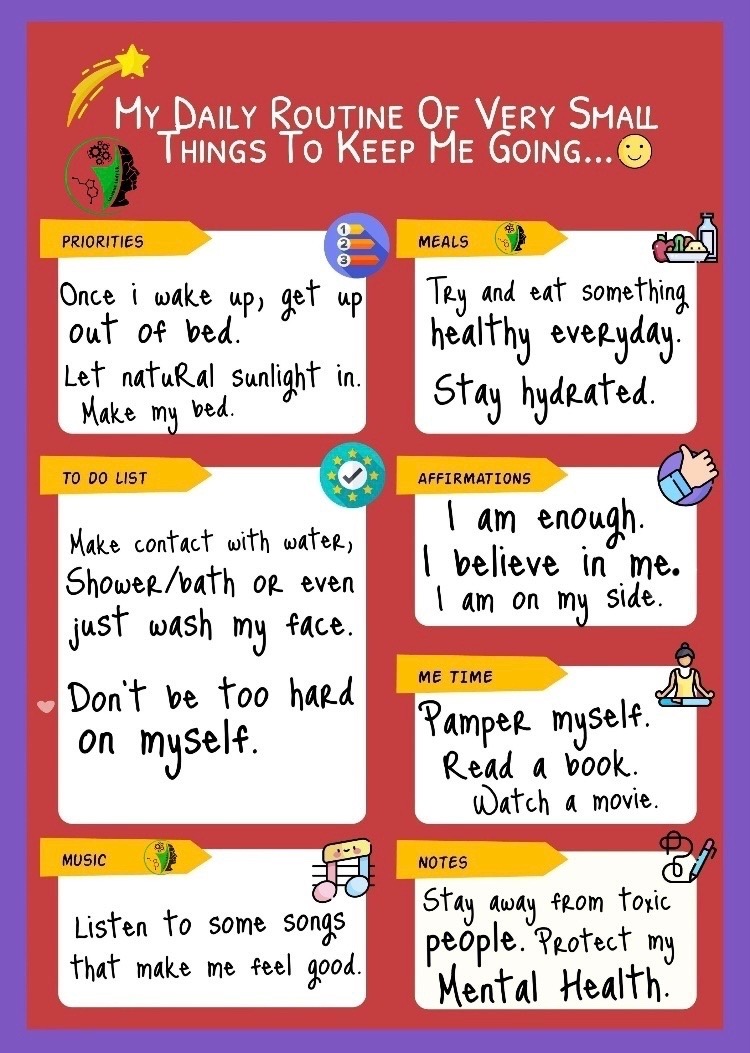
Try and use some calming and relaxation exercises…

This calming breathing technique for stress, anxiety and panic takes just a few minutes and can be done anywhere.
You will get the most benefit if you do it regularly, as part of your daily routine.
You can do it standing up, sitting in a chair that supports your back, or lying on a bed or yoga mat on the floor.
Make yourself as comfortable as you can. If you can, loosen any clothes that restrict your breathing.
If you’re lying down, place your arms a little bit away from your sides, with the palms up. Let your legs be straight, or bend your knees so your feet are flat on the floor.
If you’re sitting, place your arms on the chair arms.
If you’re sitting or standing, place both feet flat on the ground. Whatever position you’re in, place your feet roughly hip-width apart.
Let your breath flow as deep down into your belly as is comfortable, without forcing it.
Try breathing in through your nose and out through your mouth.
Breathe in gently and regularly. Some people find it helpful to count steadily from 1 to 5. You may not be able to reach 5 at first.
Then, without pausing or holding your breath, let it flow out gently, counting from 1 to 5 again, if you find this helpful.
Keep doing this for 3 to 5 minutes.
Help coping with intrusive thoughts…
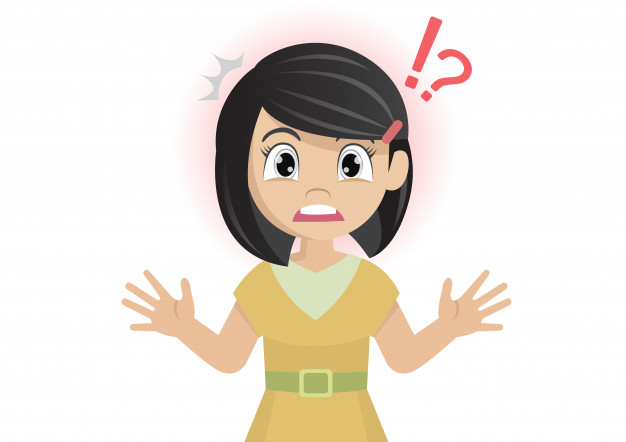
Intrusive thoughts are something that virtually everybody experiences at some point in their life. They are the distressing, senseless, unwanted thoughts, images or urges that suddenly pop into your mind. They can be very varied but usually take the form of..
Doubts…

What if faint in public? what if my benefits stop?
Images…
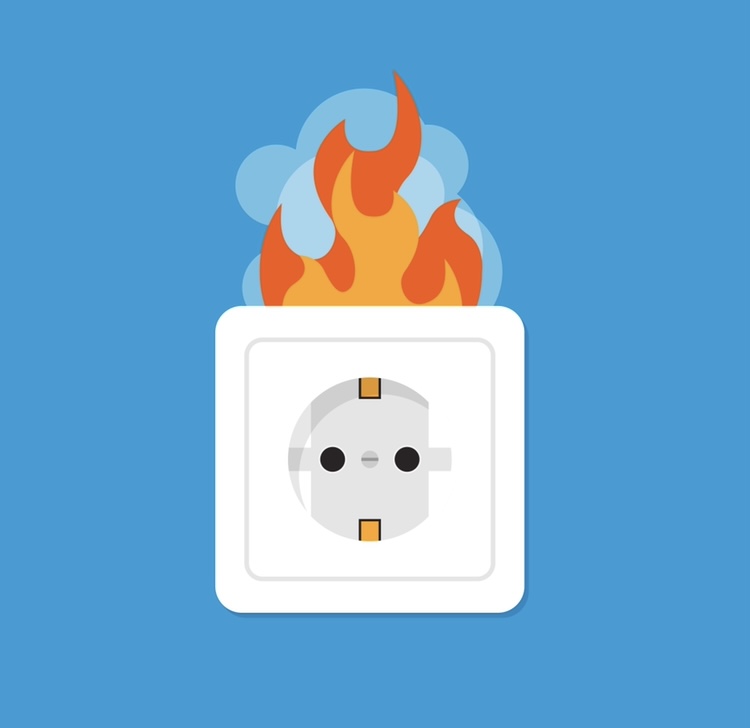
The image of the house burning down because something overheated.
Impulses…

Urge to plump up cushions every time you go into the lounge, urge to drink excessively, hooking up with someone who you don’t like and other reckless behaviour.
Thoughts…

‘The kitchen surfaces must be disinfected before I cook’,
‘Everything must be in the right place before I leave the house.’
Who has intrusive thoughts?
Research has shown that the majority of people experience intrusive thoughts, usually about the things that are important to them.
Single people tend to have thoughts about their jobs, their families and their relationships. Pregnant women and new parents tend to have distressing thoughts which concern the unborn or new baby. Sometimes they involve thoughts about harm coming to the baby and these cause intense distress and often make parents question their ability to be a good parent.
A recent study of new mothers showed that 100% of new mums had worrying thoughts about their baby being harmed accidentally and 50% had worrying thoughts about harming their baby in some way. These thoughts were the ones that were most worrying for new mums, Although such thoughts tend to decrease naturally over time they tend to be more common when new parents are under stress and have little support.
What can help?
Try not to worry about the thoughts that pop into your mind, almost everyone has upsetting, senseless thoughts at some point in their life.
Try not to pay too much attention to them,
If you pay too much attention to them they tend to occur more often.
Also if you deliberately try to push them out of your mind they will also occur more frequently. Remember having thoughts is not the same as doing something, try not to confuse thoughts with actions.
When to seek help…
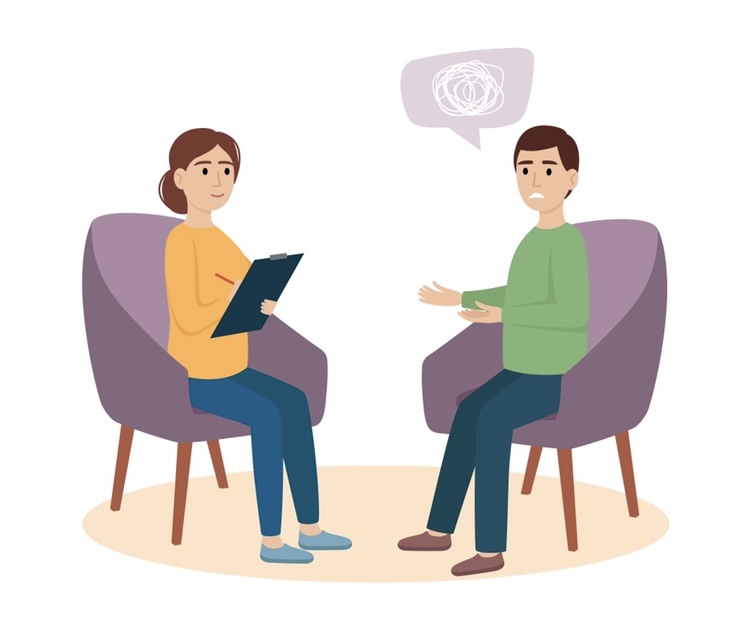
Sometimes such thoughts are associated with mental health problems which need
professional treatment.
Such problems include…
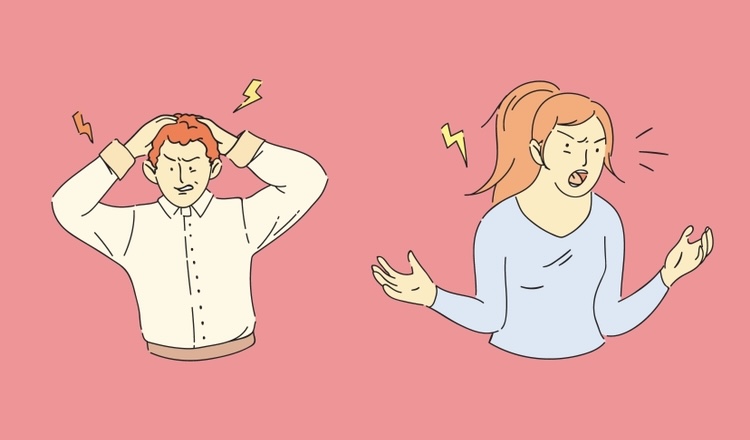
Depression
Obsessive Compulsive Disorder
Postpartum (puerperal) psychosis
